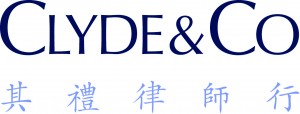3 September, 2016
Court considers scope of Article 27 of the LCIA Rules and agrees to extend time to correct an award.
Clyde & Co (Hatty Sumption and Peter Ward) for claimants, Gateley for defendant
The defendant had refused to pay sums awarded by a tribunal because, it claimed, one of the four claimants in the arbitration (and these proceedings) had not been a party to the contract which contained the relevant arbitration agreement (which provided for arbitration under the LCIA Rules and with the seat of the arbitration to be London). The defendant, which is incorporated in China, had obtained a judgment from the Chinese courts that recognition and enforcement of the award should be refused, on the ground that there was no agreement to arbitrate between the defendant and the fourth claimant. Accordingly, the claimants wished to use Article 27 of the LCIA Rules to request the arbitral tribunal to make an additional award or to correct the award which it had made, in particular to explain the basis upon which the Tribunal had found that it did have jurisdiction to resolve disputes between the fourth claimant and the defendant.
Article 27 provides that such an application must be made within 30 days of the publication of the award. Because it took over four years for the recognition proceedings in China to reach their conclusion, this deadline had necessarily long passed by the time the Claimants knew that they needed to apply to the Tribunal under Article 27. The claimants therefore applied to the Commercial Court to extend time pursuant to its powers under section 79 of the Arbitration Act 1996 (the judge noted that "It is relevant to observe that, realistically, the time limit under Article 27 of the LCIA Rules would almost always expire before the outcome was known of a contested attempt under the New York Convention to obtain recognition and enforcement of an award in another country").
Article 27 provides that a request can be made to "correct in the award any errors in computation, clerical or typographical errors or any errors of a similar nature". "Errors of a similar nature" was held to include clarifying or removing any ambiguity (a phrase used in section 57 of the Arbitration Act 1996). The judge held that although the language of Article 27 and section 57 differed, those differences were not material. The judge concluded that "the claimants would be entitled to request the tribunal to make corrections to the award that would clarify a matter that omission had left unclear or unambiguous" (ie the tribunal should explain how it had concluded that the claimant was a party to the arbitration agreement).
An extension of time was granted. The judge was satisfied that a substantial injustice would otherwise be done (section 79(3)(b)). Even though questions of enforcement had already been decided by the Chinese courts, "without correction, it is reasonable to assume that attempts to seek recognition and enforcement of the Award will be met by the same type of challenge elsewhere in the world as the [defendant] has mounted in China".
For further information, please contact:
Patrick Zheng, Partner, Clyde & Co
patrick.zheng@clydeco.com





